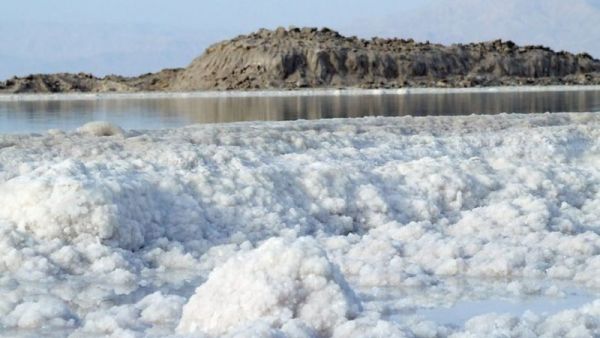Environmentalists insist the project will cause irreversible damage to the coastal and mountain aquifers, and the Dead Sea." "After decades of discussion, it is hard to take the current proposal seriously. If it is really serious, however, it will cause irreversible and unprecedented damage to the coastal aquifer, the mountain aquifer, and the Dead Sea," said EcoPeace Middle East Israel director Gidon Bromberg, referring to the new Mediterranean Sea-Dead Sea canal plan to be presented to the cabinet for approval in the coming months. "Last month, they were talking about a casino, and now it's a revised plan for the Mediterranean-Dead Sea canal. It's just tall tales."
Bromberg was speaking following yesterday's exclusive report in "Globes" that Israel Electric Corporation (IEC), Mekorot National Water Company, and a group of private developers were currently formulating a new plan for building a canal from the Mediterranean Sea to the Dead Sea. The plan is being examined by an inter-ministerial team coordinated by Prime Minister's Office director general Eli Groner. It is believed that if the cabinet approves it, IEC and Mekorot want to be partners in both ownership of the project and the work on it.
Under the current plan, 100 kilometers of tunnels will be dug to transport water from the Mediterranean Sea to the Dead Sea. The plan also includes a 1,500-megawatt underground hydroelectric power plant (producing electricity from water power) for exploiting the difference in height between the Dead Sea and the Mediterranean Sea.
"The coastal aquifer and the mountain aquifer are the two most important aquifers in the country. They supply hundreds of millions of cubic meters of water a year for both drinking and agriculture. The current plan involves tunnels that will harm both of them," Bromberg argues. He explains that tunnels are never hermetic, and seawater will definitely seep into the sweet groundwater. "The Red Sea-Dead Sea canal agreement signed last year by Israel, Jordan, and the Palestinian Authority (PA) also jeopardizes the groundwater, but at least there, the danger involves 50 million cubic meters, not hundreds of millions of cubic meters. Previous efforts to promote a canal between the Mediterranean and the Dead Sea failed for exactly these reasons."
"A violation of an agreement"
A Mediterranean-Dead Sea canal is not a new idea. Israel promoted this alternative for moving water from the Mediterranean to the Dead Sea in the 1980s, and even raised a loan for it in the US from Israel Bonds. The project was terminated, however, after the UN General Assembly resolved that digging the canal would cause environmental damage to both Jordan and the PA. A past assessment by the World Bank pointed in the same direction. Israel therefore signed in 2013 a letter of intent with Jordan and the PA to promote a canal for transporting water from the Red Sea to the Dead Sea. This canal was planned to pass exclusively through Jordanian territory. An agreement for this was signed last year.








